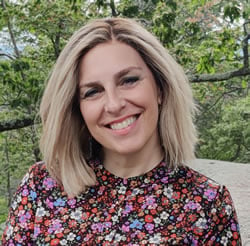Dear reader,
When you think of the characteristics that best depict artists, what words come to mind?
Free-spirited. Creative. Unbounded. Unrestrained. Innovative.
Somehow artists don’t elicit words like disciplined, constricted by rules, boundaries, or regulations.
To be creative, we need the freedom to move, to grow, and develop, without which our creativity becomes stifled and strangled.
But in truth, any type of artistic pursuit requires a tremendous amount of discipline, with many rules and boundaries. Writers are restricted by an overwhelming number of grammatical rules; they are bound by specific sentence and paragraph structure, not to mention spelling rules and more.
Musicians and artists, similarly, need hours of disciplined study and practice, closely following the rules of their craft.
And yet, to be a true artist, you also need to occasionally break free from those rules. Some of the greatest masterpieces were born by artists who made exceptions to the rules to create a work of awesome beauty.
The key is to know when to use the strict parameters of discipline and when to break free to allow uninhibited, radical originality.
In most years, the Torah portion of Nitzavim and Vayelech are read together as a combined portion. Only very occasionally, in some years, are they read separately. These two portions contain the essential aspects of our covenantal agreement with G‑d.
Nitzavim means “standing firm,” while Vayeilech means “and he walked.”
These two portions allude to the roles of these complimentary aspects of our spiritual growth. There are times when we need to stand firm and hold our place. There are other times when we need the flexibility and progress of moving forward.
We need to hold strong and stand firmly rooted when it comes to upholding our values and morals, our heritage and customs.
Avraham our forefather was called Ivri, because he came from the other side of the river. He was also called Ivri because he stood on the other side of accepted cultural mores, teaching the world about the oneness of G‑d. Every Jew must at times stand proudly “on the other side,” firm and uncompromising in his commitment, not swayed by popular opinions.
But at the same time, we can’t be so stuck in our places and so inflexible in our positions or way of doing things that we stunt our own personal growth.
Vayelech means walking, and spiritually we must constantly be progressing to a new level, so that the place where one foot landed is not the same as the next step, as we constantly progress and deepen our relationship with G‑d.
We shouldn’t feel restrained, either by our own personal feelings of failure of misgiving or by our fear of change. Every day is a new opportunity for us to leave the old and make ourselves into a newer, better person.
Chana Weisberg
Editor, TJW






